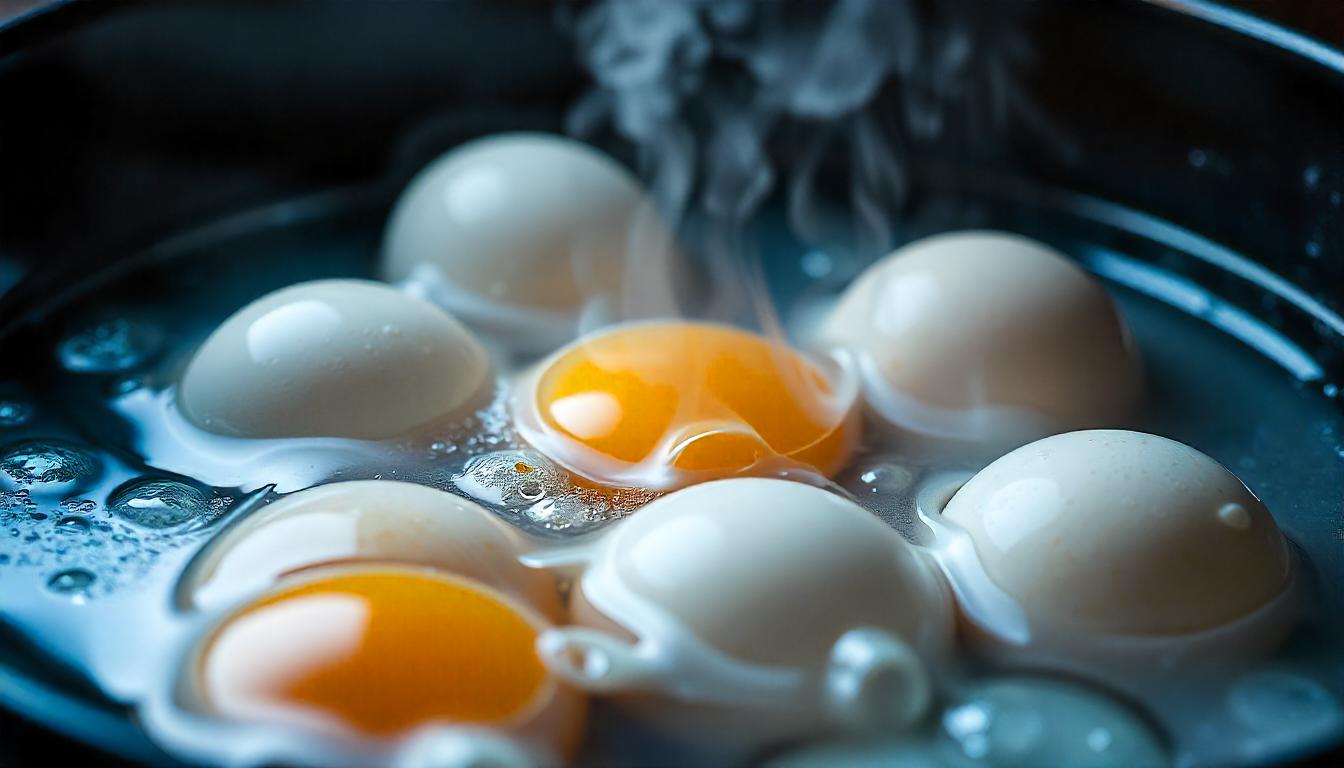How Long to Boil Eggs: A Complete Guide
Boiling eggs is a simple yet essential cooking skill. Whether you want soft-boiled, medium-boiled, or hard-boiled eggs, the cooking time determines the texture of the yolk. This guide will help you achieve perfect eggs every time.
1. Factors That Affect Boiling Time
Several factors influence how long it takes to boil an egg, including:
- Egg size (small, medium, or large)
- Starting temperature (room temperature vs. refrigerated)
- Altitude (higher altitudes require longer cooking times)
- Water temperature (cold start vs. boiling water start)
2. Boiling Time for Different Types of Eggs
The following times are based on placing eggs in boiling water:
2.1 Soft-Boiled Eggs
- 4 minutes: Runny yolk and slightly set whites.
- 5 minutes: Creamy yolk with firmer whites.
2.2 Medium-Boiled Eggs
- 6 minutes: Yolk is partially set but still soft.
- 7 minutes: Firmer yolk but slightly creamy center.
2.3 Hard-Boiled Eggs
- 8 minutes: Fully set yolk with a slight creaminess.
- 9-10 minutes: Firm and crumbly yolk, ideal for salads and deviled eggs.
3. Step-by-Step Guide to Boiling Eggs
3.1 Traditional Method (Boiling Water Start)
- Fill a pot with enough water to fully submerge the eggs.
- Bring the water to a rolling boil.
- Gently add the eggs using a spoon.
- Set a timer based on your desired doneness.
- Once the timer goes off, transfer the eggs to an ice water bath.
- Let them sit for at least 5 minutes before peeling.
3.2 Cold Start Method (Eggs in Cold Water)
- Place eggs in a pot and cover with cold water.
- Bring the water to a boil over medium-high heat.
- Once boiling, turn off the heat and cover the pot.
- Let the eggs sit for:
- 4-6 minutes for soft-boiled
- 8-10 minutes for hard-boiled
- Transfer to an ice bath before peeling.
4. Peeling Tips for Easy Shell Removal
- Use older eggs for easier peeling.
- Tap the egg gently on a hard surface and roll it.
- Start peeling from the wider end, where an air pocket is usually present.
- Peel under running water to help remove the shell.
5. Storage and Usage
- Refrigerate boiled eggs (unpeeled) for up to one week.
- Use them for salads, sandwiches, deviled eggs, or snacks.
6. Common Mistakes to Avoid
- Overcooking: Causes a greenish ring around the yolk.
- Skipping the ice bath: Makes peeling more difficult.
- Cracking eggs before boiling: Leads to egg whites leaking into the water.
Conclusion
Boiling eggs perfectly depends on precise timing and proper cooling. With this guide, you can master the art of boiling eggs and enjoy them just the way you like! Happy cooking!
